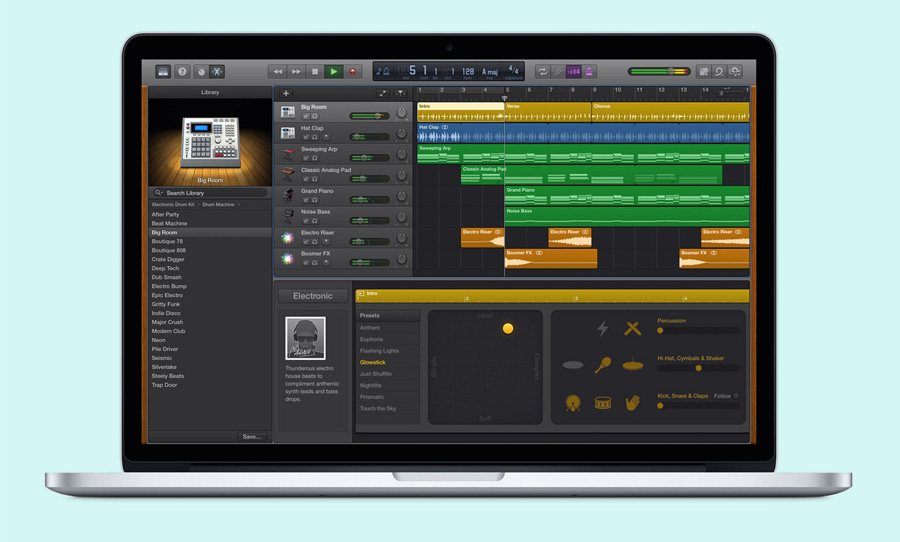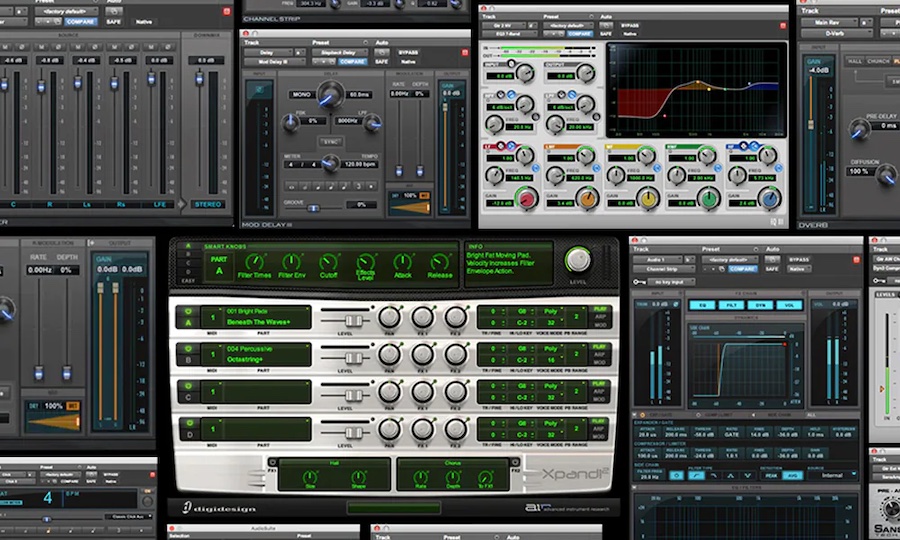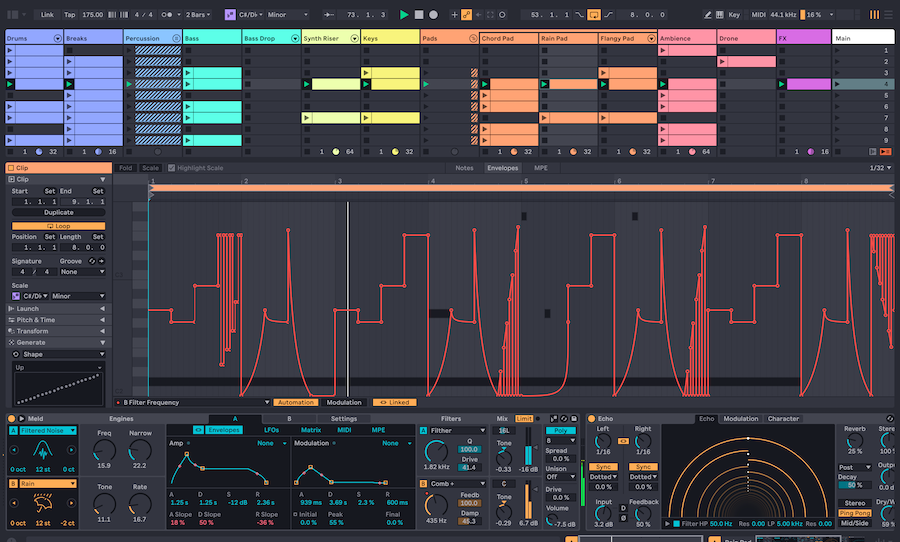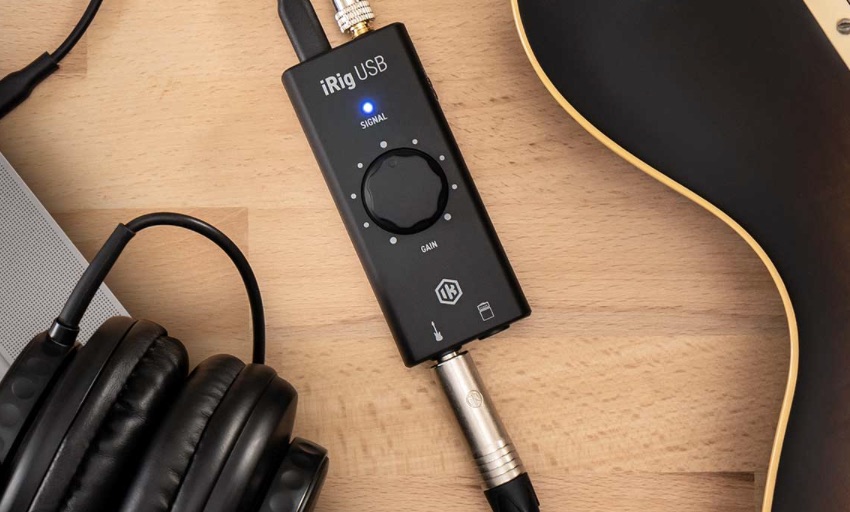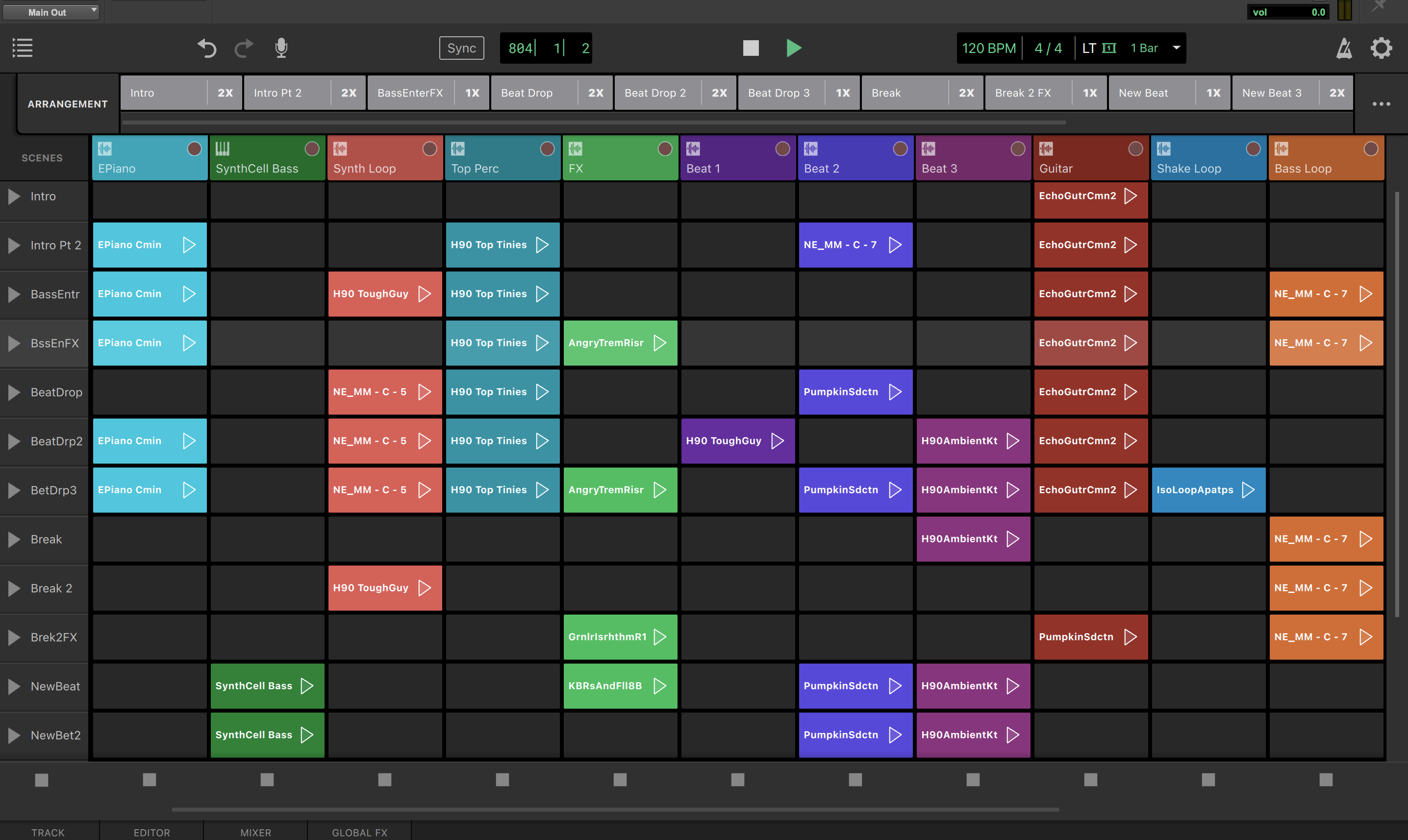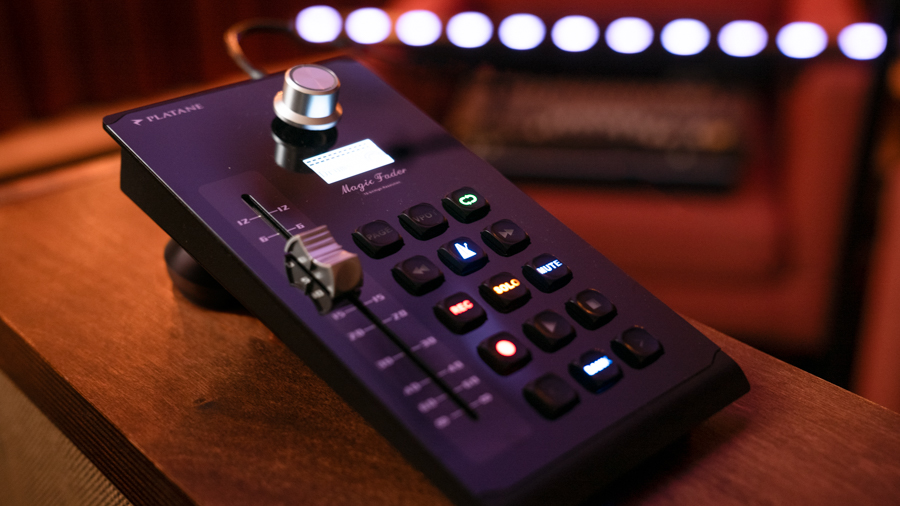Fancy creating quality music from your computer without the financial outlay? Here’s the best free music production software absolutely anyone can use.
Big-budget studios are no longer the only path to making great music. Today, countless high-profile artists—from Billie Eilish and FISHER to Spacey Jane—have crafted world-class tracks using free music production software right from their bedrooms.
No matter your platform—Windows, Mac, or mobile—there’s a wealth of free, powerful tools available. Whether you’re just starting out or looking for serious control without the price tag, the options keep getting better.

We’ve rounded up the best free DAWs and music-making software for beginners and pros alike. These programs pack plenty of features and expressiveness, often encouraging upgrades but still offering plenty to create without spending a dime.
Dive in and explore some of the best free music software out there—your next creative breakthrough could be just a download away.
Free tools and options for expressive control are here in spades as these programs are often trying to seduce you into upgrading to their more professional older cousins. Defy the seduction and create without cost!
SyndtSphere (Mac, Windows, iOS)
If you’re new to the world of music production and not quite ready to dive headfirst into complex DAWs, SyndtSphere is a killer place to start.
Built by the ever-inventive Klevgrand, this polyphonic synthesizer is both playful and powerful—with a fresh twist on how we interact with sound.
Forget faders and drop-down menus. SyndtSphere swaps the usual interface for a strange and wonderful sound-surfing sphere.
This ball at the heart of the app lets you glide seamlessly between over 70 lush presets, morphing tones as you move through its dreamy, spiderweb-like soundscape.
It might look a bit out there, but don’t let the unique design throw you. This thing is wildly intuitive.
It’s one of the most beginner-friendly free synth tools on the market, with just enough depth to keep more experienced producers interested too.
Whether you’re looking to mess around with ambient textures or dig into more polished synth sounds, SyndtSphere delivers plenty of sonic range.
It’s fun, fluid, and free—three words we’ll never get tired of in music production.
Pros: Beginner-friendly, slick UI, 70+ presets
Cons: The interface might take a minute to click with—but trust us, it’s worth it.

Qtractor (OS, Linux)
If you’re rolling with Linux and itching to dive into music production, Qtractor might just be your new best friend.
It’s a powerful, free DAW built specifically for the open-source OS, packing all the essential tools and then some to kickstart your sonic journey.
Designed with simplicity in mind but loaded with pro-level features, Qtractor supports standard MIDI files, non-linear editing, multi-track recording, overlapping clips per track, and both audio and MIDI sequencing.
It’s an ideal sandbox for experimenting, layering, and refining your sound without hitting creative roadblocks.
Under the hood, Qtractor is built in C++ using the Qt framework, and it plays nice with JACK for audio and ALSA for MIDI.
That means serious power and flexibility on a Linux system, all wrapped in a user-friendly GUI tailored for bedroom producers and home-studio enthusiasts alike.
Oh, and did we mention it’s totally free and open-source? Released under the GNU General Public License, Qtractor invites you to tweak, explore, and create with zero cost and total freedom.

Audacity (Windows, macOS, Linux)
If you’re chasing a no-fuss, audio-focused setup, Audacity is one of the best free tools out there.
It’s a streamlined digital audio editor and recorder that’s been a staple of bedroom studios for decades—and it’s still going strong.
Audacity lets you record live audio, edit with precision, and export in a wide range of formats. It also features a spectrogram view for those who like to get visual with their sound.
While it doesn’t come with built-in instruments or virtual synths, its real strength lies in capturing and refining raw audio—whether that’s vocals, podcasts, field recordings, or samples you’ve dug up yourself.
Not just a cult favourite, Audacity is a heavyweight in the world of free software.
As of late 2022, it had clocked over 114 million downloads from FossHub alone. That kind of love doesn’t lie.
Pro: Excellent for clean, high-quality audio recording and editing without the bloat.
Con: No built-in instruments or MIDI capabilities—strictly audio only.

Ardour (Mac OS, Linux)
Ardour is a powerful open-source DAW available on macOS and Linux, perfect for recording live instruments and professional editing without costing a cent (donation-based).
Created by Paul Davis, it rivals big-name software like Pro Tools in features and flexibility.
Setting up is simple: plug in your gear, add tracks, and record. You can import audio or MIDI from your files or the Freesound database.
Editing tools cover everything from cutting and moving clips to stretching, quantizing, and more, all with unlimited undo.
Mixing is highly flexible with advanced routing, automation, EQ, and support for external control surfaces.
Ardour supports numerous plugin formats, including VST, AudioUnit, and LV2, with full automation and MIDI control.
It’s ideal for audio engineers, musicians focused on live instruments, composers, podcasters, and video editors thanks to frame-accurate video syncing and easy soundtrack management.
The software’s open-source nature ensures ongoing development focused on real user needs, not flashy marketing.
The main downside is its steep learning curve for beginners. But if you want professional control without the price tag, Ardour is one of the best free DAWs out there.

BandLab (Web, Windows, macOS, iOS, Android)
BandLab is the ultimate all-in-one music studio that lives right in your browser—or on your desktop or phone.
Whether you’re on Windows, Mac, iOS, or Android, you can record, mix, and produce tracks anytime, anywhere. Its cloud-based workflow means you can collaborate in real-time with friends or artists across the globe, making remote jams feel totally natural.
Packed with loops, virtual instruments, and mastering tools, BandLab offers a seamless experience from start to finish.
You can even export your finished tracks directly to SoundCloud or YouTube, cutting out extra steps and getting your music out there fast.
Best of all? It’s 100% free, so no barriers between you and your creative vision.
Pro: Real-time collaboration makes remote music projects effortless.
Con: Being cloud-based means it relies heavily on a stable internet connection.

Surge XT (Windows, macOS, Linux)
Surge XT is an open-source wavetable synth that’s packed with features usually found in premium plugins.
With over 2,000 presets and MPE support, it’s a powerhouse for anyone wanting to dive deep into sound design or build synth-heavy tracks.
This plugin rivals paid giants like Serum, and the free version doesn’t skimp on core features.
Whether you’re exploring lush pads, sharp leads, or textured soundscapes, Surge XT has the tools to get creative — from a flexible modulation engine and a wide array of filters to a rich effects suite.
What really sets Surge XT apart is its modern touch: microtuning with MTS-ESP support, comprehensive Open Sound Control (OSC) capabilities, and an active, friendly open-source community backing it.
It’s a synth that invites experimentation, perfect for sonic adventurers.
In short? Surge XT is a brilliant synth plugin. We love it, and we think you will too.
Pro: All the core features of a top-tier wavetable synth without the price tag.
Con: The interface can feel overwhelming at first for synth beginners.

LMMS (Windows, macOS, Linux)
If you’re diving into electronic music or crafting beats, LMMS is a solid free option that deserves your attention.
This open-source digital audio workstation channels a workflow very similar to FL Studio, making it familiar for anyone who’s tried that classic beat-making powerhouse.
Inside LMMS, you’ll find a handy Beat + Bassline Editor, a range of built-in synths like the robust ZynAddSubFX, and full support for VST plugins to expand your sonic palette.
MIDI input is also supported, so you can plug in your favorite controller and start playing immediately.
While it’s powerful, LMMS doesn’t currently allow for direct audio recording, which means it’s best suited for MIDI and sample-based productions rather than recording vocals or live instruments.
Pro: Powerful, FL Studio-inspired workflow with great synth and plugin support.
Con: No direct audio recording capability.

SoundBridge (Windows, macOS)
If you’re just stepping into the world of music production or looking for a streamlined tool to polish your tracks, SoundBridge is a seriously solid option.
Its intuitive interface is super user-friendly, even offering touchscreen support to keep things flexible and hands-on.
Whether you’re arranging beats or mixing your next banger, this lightweight DAW packs a surprising punch without overwhelming you.
On top of that, SoundBridge comes loaded with a free sound library, a range of VST plugins, and built-in tutorials to get you up and running fast.
It’s designed to help you focus on your creativity without needing to wrestle with complicated menus or steep learning curves.
Pro: Perfect for beginners who want a clean, accessible interface that still handles professional mixing and mastering needs.
Con: Might feel a bit basic for producers looking for deeper, advanced features or extensive customization options.

Apple GarageBand (macOS, iOS, iPad)
If you’re a Mac user looking to dive into music production without spending a dime, GarageBand is hands-down the best free software out there.
Apple’s own DAW has evolved massively since its debut in 2004, packing in features that even borrow from their professional Logic Pro.
Available across macOS, iOS, and iPad, GarageBand offers a seamless and flexible experience across Apple devices, making it easy to create music anywhere.
The interface channels Logic Pro’s sleek design, so if you ever decide to upgrade, the transition feels natural.
One standout feature is Drummer — an intuitive groove-maker loaded with multiple genre styles and a huge variety of patterns and fills.
Plus, you get access to Apple Loops, a rich sound library to spark your creativity.
While GarageBand does have some limitations, like no MIDI export or external hardware control, its 255-track limit still gives you plenty of room to build complex arrangements.
All in all, GarageBand is a powerful, user-friendly entry point to music making on Apple devices.
Pro: Free and flexible across Apple platforms
Con: Lacks Live Loops view and could improve mixer and levels indicators when using plug-ins

Pro Tools Intro (Mac, Windows)
If you’re eager to dive into music production with software trusted by industry pros, Pro Tools Intro is an ideal starting point—and it’s completely free.
Avid’s Pro Tools Intro offers a streamlined version of the full Pro Tools experience, giving beginners access to essential tools for recording, editing, and mixing music.
You get a solid set of features including audio and MIDI recording, 36 built-in plugins, hundreds of instrument sounds and loops, plus the versatile Xpand!2 virtual instrument loaded with over 2,500 presets.
Despite being free, Pro Tools Intro runs on the same core technology as its paid counterparts, so you’re learning the real deal from the get-go.
It supports high-quality recording up to 192 kHz, making it perfect for capturing pristine sound.
Getting started is easy: just download the software from Avid’s website, register your account, and activate your free license.
Whether you want to experiment with beats, craft full songs, or get to know a professional-grade DAW, Pro Tools Intro offers a budget-friendly path into music making.
In short, Pro Tools Intro is a fantastic tool for anyone wanting to learn Pro Tools’ workflow, explore music production without financial commitment, or jumpstart a creative project with trusted software.
